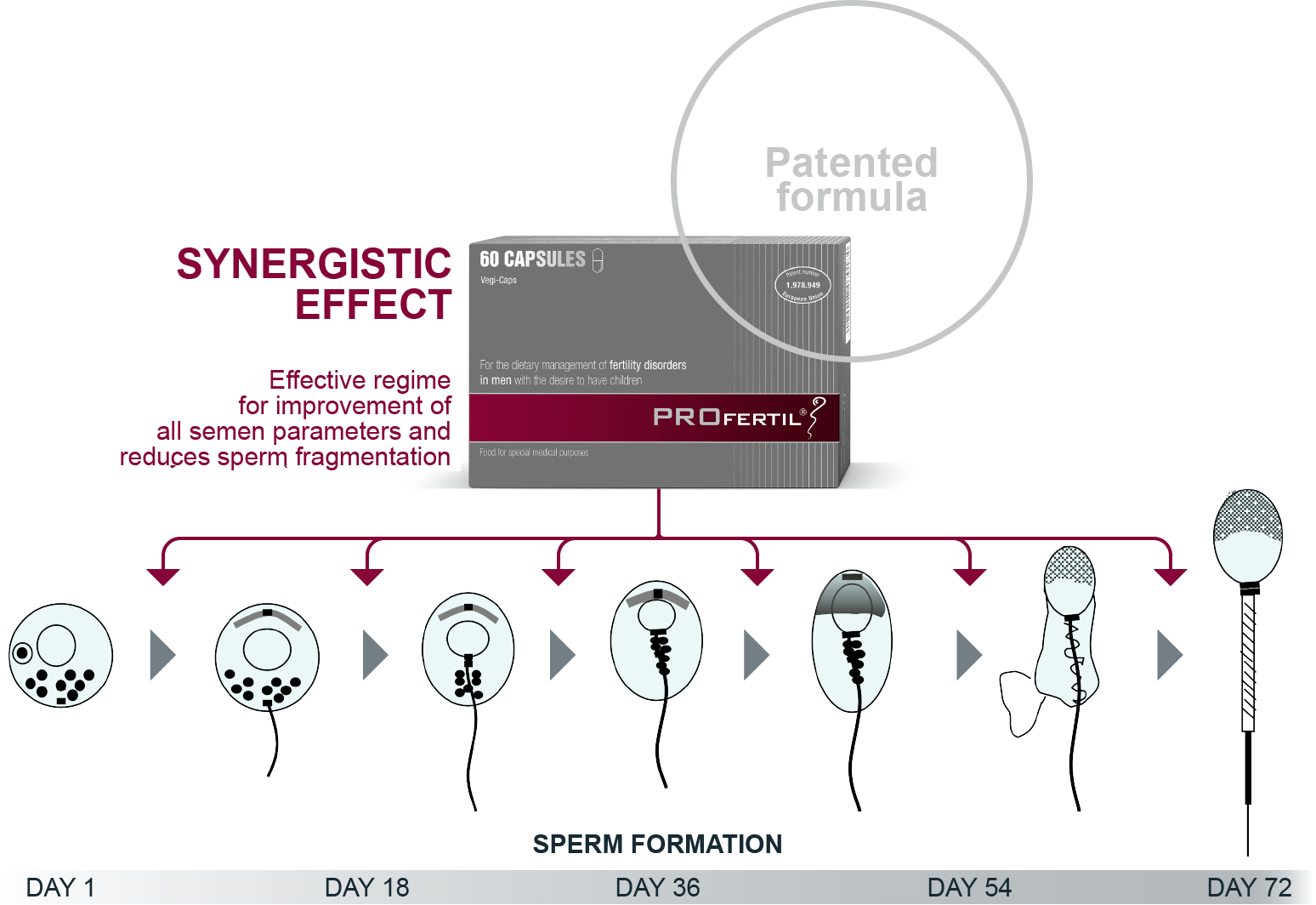
HOW SPERM PRODUCTION WORKS
Hormones play a decisive role in sperm production (=spermatogenesis). The pituitary gland generates a hormone known as follicle stimulating hormone (FSH). The luteinizing hormone (LH) is generated at the same time. While both hormones lead to the maturation of egg cells in women, in men they are responsible for the formation of sperm cells.
At first, the sperm production and maturation process may sound short, lasting about two to three months (i.e. every three months a new “sperm cell set” is formed in the epididymis (testicles)). However, it is primarily the fully mature sperm cells who stand a fighting chance in egg fertilization. Two to three months, therefore, is a large window of opportunity for sperm development disorders to have a fatal impact.
The number of sperm produced in a man depends on many different factors, such as his genetics, environment, physical condition and frequency of sexual contact. Therefore, sperm count can vary person-to-person. The average, sexually mature man has about two to three billion sperm available at any given time. But because sperm cells in the seminiferous tubules are constantly being regenerated, these reserves are always a mixed bag of sperm cells at different stages of maturity.

WHAT SPERM CELLS NEED
In the course of sperm cell maturation, the body requires special nutrients such as amino acids, micronutrients, vitamins and vitamin-like substances at different development stages. The optimal prerequisites for normal and healthy spermiogenesis are only guaranteed if these special vital substances are provided.
Certain life situations and an unhealthy lifestyle can rapidly lead to a deficiency of these substances, which the person concerned does not even notice in most cases. Above all, however, sperm cells react unfavorably to external factors such as infections, medication and X-rays.
